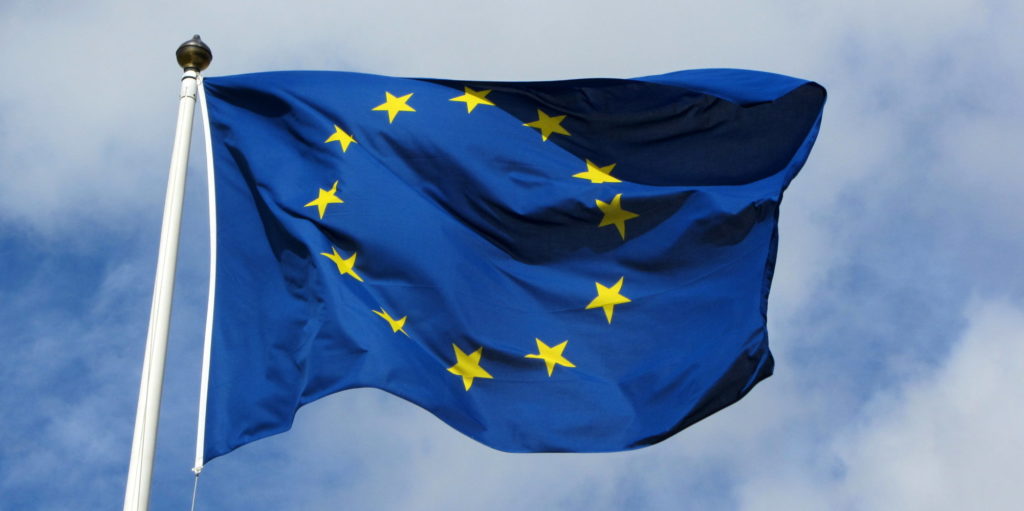The European research organizations ETIP and EUREC along with the PV industry association Solarunited have issued an open letter – – Open Letter from European PV Community – in which they request urgent measures for the future of the European solar manufacturers. The letter, which is directed to all European policy makers, asks them to support the further development of the European PV manufacturing sector.
The reason for the letter are recent developments of the industry, which have spread fears that vital parts of the PV industry in Europe could be lost and, with them, other activities in the R&D sector.
Eicke Weber, former head of Germany’s Fraunhofer-ISE and current president of EUREC, explains that the PV community in Europe is concerned about the risk of losing contact with the flourishing global market.
“The reason for the letter is of course the insolvency of Solarworld, Europe’s last large solar manufacturer”, Weber told pv magazine. “There is also the risk that Solarworld will end up like Q-Cells, which was acquired by an Asian company. This would mean the closure of solar manufacturing in Germany.” Weber also highlighted the importance of maintaining the entire PV supply chain in Europe, claiming that all of the R&D sector would benefit from the revival of the solar industry.
In the letter, the three associations said solar is a strategic sector for the European economy in terms of energy independence, jobs and economic growth.
Furthermore, Europe has been leading the PV industry for two decades and it currently has at its disposal many modern and sustainable production facilities. Despite the current global overcapacity outside Europe, the Old Continent’s industry has achieved to maintain the entire PV supply chain to date. This must be the main basis to maintain a significant technology advantage in terms of competitiveness outside Europe, beyond the support for the R&D sector, the letter says.
Overall, the three organizations have submitted seven requests. First of all, the European policy makers were demanded to maintain existing manufacturing facilities and develop further Europe’s biggest state-of-the-art factories. Furthermore, the letter asks not to relocated to outside Europe solar manufacturing activities. National and European investment banks are also invited to signal their interest in backing manufacturing in PV. In addition, the three associations claim, access to investment support needs to be provided.
The second action required, called for in the letter, is focusing on supporting the manufacture of high-quality, technologically advanced products at scale. This could guarantee Europe has the right strategy for being internationally competitive in the solar industry, the letter stresses.
In their third request, the authors of the letter say Europe should increase and sufficiently finance solar R&D activities. “The current financing schemes at national and European level,” the letter says, “should be raised to the levels of our foreign competitors. Also, European public money for pilot production must require that initial commercial scale production happens in Europe.”
The fourth recommendation urges European policy makers to implement smart regulation to give products complying with EU manufacturing standards the advantage of receiving public support if linked to sustainability and efficiency criteria.
The last three actions required by the letter call for the creation of a special contribution from EU member states with the biggest R&D expenditures, the fostering of political and technological cooperation with emerging markets, and the removal of all barriers against the rapid addition of centralized and decentralized PV to the power system in Europe.
This content is protected by copyright and may not be reused. If you want to cooperate with us and would like to reuse some of our content, please contact: editors@pv-magazine.com.




It was tendentious, some would say dishonest, for a group of stakeholders in PV panel manufacturing to claim to speak for the “European PV Community”. This carefully excludes two PV sectors where European businesses are doing just fine: pv manufacturing equipment, where European businesses like Siemens and Meyer Burger enjoy a leading world position at every stage from silicon refining to module assembly; and installation, where European developers like ENEL and ENGIE are creating solar farms in dozens of countries, and other companies sell microgrids and gear for distributed generation in Africa.
Read David Ricardo’s classic chapter “On trade” (1817), that set out the principles of comparative advantage, before rushing to propose protectionist measures that support a tiny number of pv manufacturing jobs at the expense of a much larger number in installation.